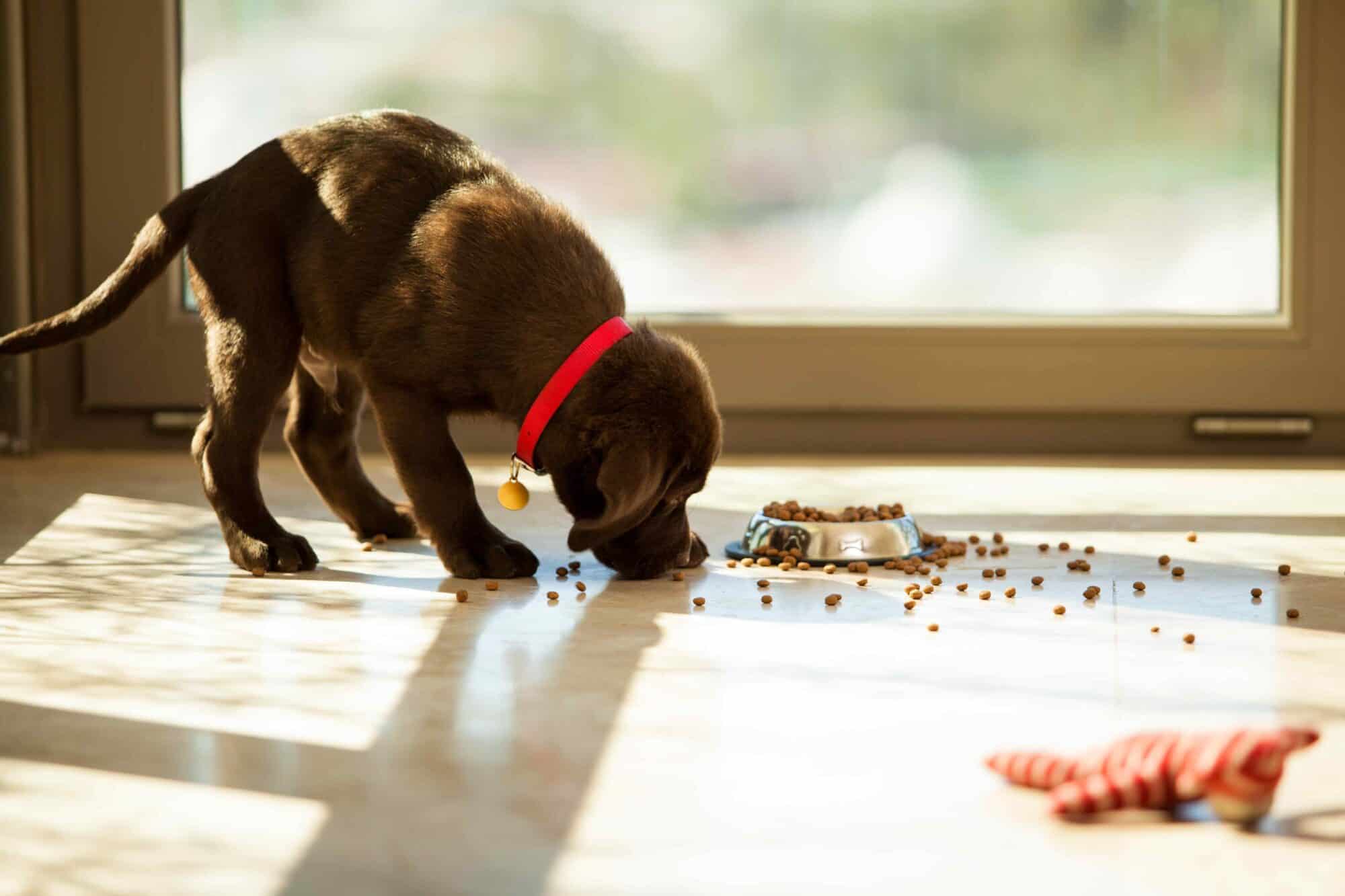Help! My Puppy Eats Too Fast for Their Own Good

Most, if not all, pets enjoy their food and relish meal times. This doesn’t mean that they savor every bite, however. Instead, a common reaction to a bowl of food is to simply inhale it without appearing to chew even a morsel of it. This is true for pets of all ages, but if your puppy eats too fast, he could actually face serious health consequences.
A Look at Behavior
Perhaps the best explanation for why a puppy eats too fast is because they have (or previously had) competition. Sure, they’re also hungry and are motivated by the oh-so-good feeling in their tummy when full. But is it just hunger that makes them gobble their food?
Old Habits
Your puppy’s breed may partly explain why they wolf down their food. Depending on their ancestry, they might have incredibly strong survival instincts that propel this behavior. Additionally, they could have come from an environment where food was scarce. Whatever the case may be, the result of eating too fast could include vomiting and/or diarrhea.
Prevention Matters
While no one wants their new puppy to endure bouts of vomiting and diarrhea, if a puppy’s eating behavior persists they could actually develop a life-threatening condition called bloat, or gastric dilation-volvulus (GDV).
When a puppy eats too fast she also swallows a great deal of air. The sign of this is typically distension of the abdomen. What’s worse, the stomach or intestines can actually twist, and cannot untwist without veterinary help. This painful condition can cause the following symptoms:
- Excessive drooling
- Signs of distress, like whimpering or pacing
- Unsuccessful vomiting (retching)
- Swollen abdomen
- Pain to the touch
- Rapid breathing
Bloat is a medical emergency and must be handled by a veterinarian immediately. Diagnostics will be conducted in order to prepare your puppy for surgery.
First Steps
If you see that your puppy eats too fast, schedule a wellness exam so we can rule out major concerns. Then we can begin to modify their behavior to promote good digestion and overall health.
To slow them down at meal time, try these tips from your Rocklin Ranch Veterinary Team:
- Invest in a slow-feeder bowl. These usually have a maze-like interior with partial barriers that makes pets work harder to get at their food.
- Try other containers or muffin pans to break their food portion into smaller sections.
- Food puzzles are also great because they stimulate your puppy’s mental development, while rewarding them with tasty morsels when they figure out the puzzle. This can be a slow process before they get all the food out, and can be noisy and distracting. But they’ll keep at it until they’re tuckered out!
- While your puppy is growing and learning about their new environment, you can train them to eat their food in a slow, measured way. Use their food as a means to get them to sit, stay, or come. Hand-feed their food to them, and watch the devotion grow. Over time, you can start to use the training commands to get them to eat slowly at their own meal station.
Puppy Eats Too Fast
If you have questions or concerns about your puppy’s development, behavior, and nurtrition, feel free to call us at (916) 624-PETS (7387).
